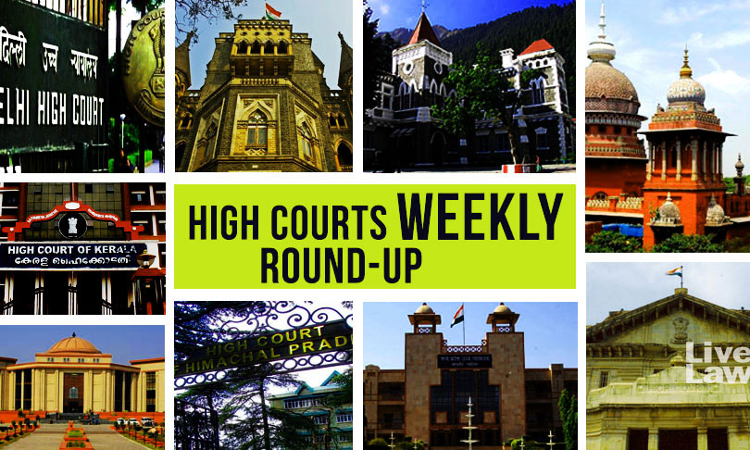- Home
- /
- News Updates
- /
- High Courts Weekly Roundup
High Courts Weekly Roundup
Akshita Saxena
24 Aug 2020 10:54 AM IST
Week Commencing From August 17, 2020 To August 23, 2020 Allahabad High Court 1) Allahabad HC Adjourns Dr. Kafeel Khan's Habeas Corpus Plea to August 24 For Final Hearing And Disposal [Nuzhat Perween v. State of UP & Anr.] The Division comprising Chief Justice Govind Mathur and Justice Samit Gopal has fixed the Habeas Corpus plea filed against alleged illegal detention of...
Tags
Next Story



